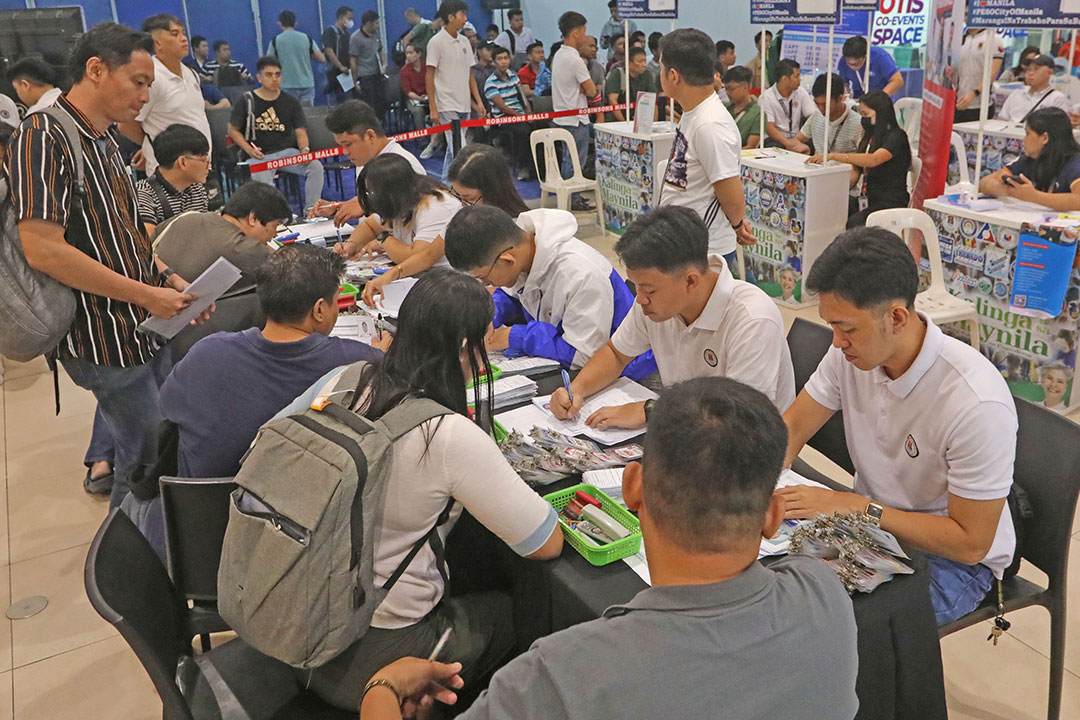
BETWEEN 35% and 37% of Philippine jobs are at risk of displacement to artificial intelligence (AI), the World Bank said.
“About 35% to 37% are exposed” to AI risks, World Bank Group Lead Economist and Program Leader for the Prosperity Unit for Brunei, Malaysia and the Philippines, Gonzalo Varela told a panel on Monday.
He also noted the high adoption of generative AI in the operations of the Information Technology Business Process Management industry.
The IT and Business Process Association of the Philippines in December reported that 67% of its surveyed members are already using AI in customer service, data entry, and quality assurance, though challenges persist.
However, 8% of its members surveyed reduced their workforce because of AI.
In a separate report in August, the bank said the Philippines ranked fourth in ChatGPT traffic as of March 2024.
The World Bank noted that five middle-income countries — Brazil, India, Indonesia, Mexico and the Philippines — showed “generative AI traffic levels significantly higher relative to the US than their other metrics would suggest.”
Bilal Khan Muhammad, social sector economist at the Asian Development Bank, noted that AI advancements are now impacting white-collar jobs, with many tasks being performed by AI tools.
“But then with the recent advancements in AI, we also see white-collar jobs have also been replaced by these AI tools where we are seeing a lot of tasks now can be performed by the AI itself.
You just ask the AI to help you with the representation or format a document or help you prepare a draft,” he said.
Mr. Varela said AI could be a “productivity shock” and provide opportunities for workers in the Philippines.
The government’s Trabaho Para Sa Bayan plan needs to explore how “to take advantage of the technological changes that are going to affect job creation,” he added.
At the same event, the departments of Economy, Planning, and Development (DEPDev), Trade and Industry and Labor and Employment, launched the Trabaho Para sa Bayan Plan 2025-2034.
The 10-year plan aims to strengthen and future-proof the workforce.
The plan includes a research agenda to gauge the impact of AI on labor demand across various industries, job roles, and skill levels, and identify vulnerable occupations.
Labor Secretary Bienvenido E. Laguesma said the government has yet to firm up a national policy on AI.
“We believe that AI can supplement, can complement, but cannot replace,” he told reporters.
Mr. Laguesma noted that the National Innovation Council, chaired by President Ferdinand R. Marcos, Jr., approved the creation of a think tank which will create a roadmap for AI use.
The think tank, whose lead agency will be the Department of Science and Technology, will guide the drafting of AI policy.
“Protection does not mean retention. It could mean upgrading, looking for another job, facilitating their employment, and the provision of social safety nets. That’s where we are,” Mr. Laguesma said.
Meanwhile, DEPDev Undersecretary Rosemarie G. Edillon noted that the low exposure of AI stems from the overall low level of technology adoption in the Philippines.
“Underlying all this, especially on the part of data and then creating models, this is really where you will need this policy on ethics, on the use of AI,” she added. — Aubrey Rose A. Inosante